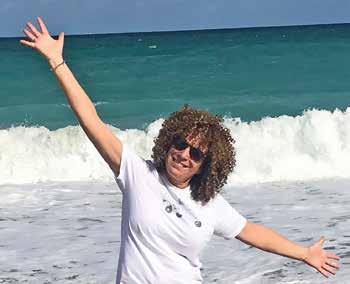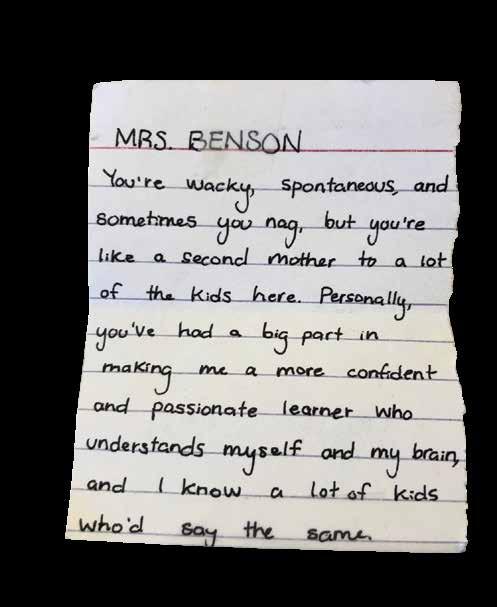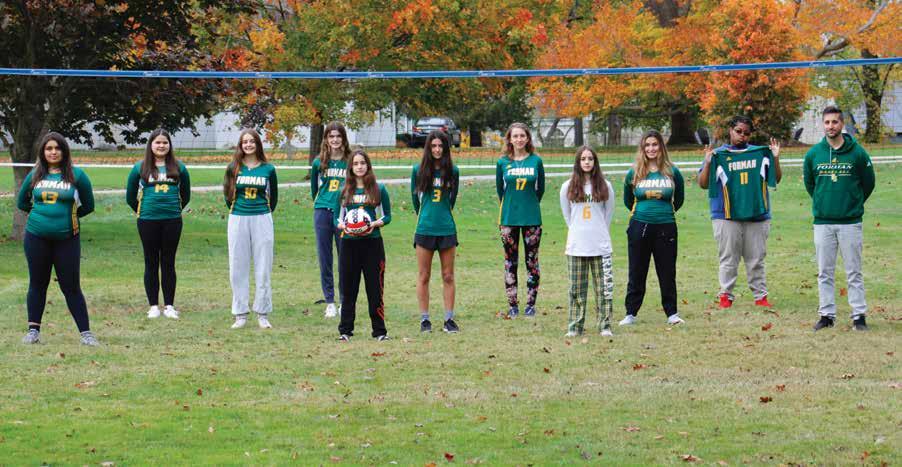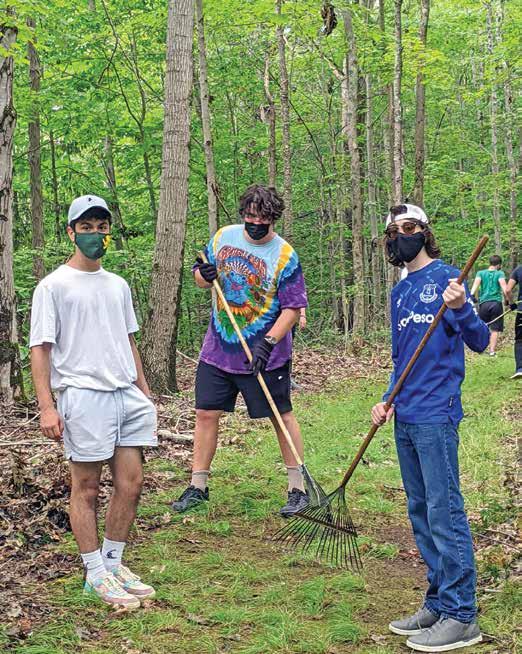
4 minute read
Around the Green
FACULTY PROFILE
Welcome to the Club
Jane Benson ’76 grew up in the Boston area and was living in Brookline by the seventh grade. Her academic experience had been frustrating. Like many Forman students, Benson had strengths and weaknesses. “I was very good verbally,” she recalls. “I could hold my own when it came to delivering zingers and expressing myself. No problem.” But she wanted nothing to do with math, reading, or writing.
In the seventh grade, Benson was diagnosed with developmental dyslexia in reading, written language, and math. (It was later determined she had issues with attention deficit as well.) Her school wanted to put her into a self-contained class for students who were struggling academically. “Quite frankly, they said I was mentally retarded,” says Benson. “That’s what they called anyone with, in their term, developmental disabilities. There was no concept of having learning differences.”
Her stepmother, a special educator who worked with hearing-impaired students, was not happy with that course of action. The school was focusing on, and defining her by, her problem areas. And ignoring her obvious verbal abilities. “She said that the phrase ‘mentally retarded’ was for students who fared poorly in all academic areas,” says Benson. Jane Benson ’76 (lower right) “That wasn’t me.” with her Forman classmates
Around this time, Benson, frustrated by her experiences in school, began to gravitate toward a bad crowd. With the dire situation in school, and the troubling social developments, her parents, unbeknownst to her, began to seek options for her. “They worried about me going down the wrong path,” says Benson. “With good reason.”
One day, in January of eighth grade, Benson’s parents took her on a mid-week road trip. As she watched the scenery roll by, Benson had no idea where they were going


or why. As they approached Litchfield, her parents opened up. “They said we are going to check out this school,” says Benson. “And we want you to have an open mind.”
But Benson had watched her older sister’s boarding school search and was fairly sure she wanted no part of that life.
Upon arriving at Carpenter, Benson and her parents sat and briefly talked with Forman’s Director of Admission, the inimitable Miss Avis Halsey. Then Jane went on a tour with a student named Mary Durham ’75 who went by “Dru.” “I will never forget that experience,” says Benson.
After the meeting with Miss Halsey, Benson knew that Forman was for students who learn differently. But Benson, as she walked and talked with Dru, and as she looked around, was quickly struck with a flash of insight.
“All the kids were like me.”
Her initial resistance to the idea of a boarding school began to ebb. Especially this boarding school, which was clearly a better environment than the one her home school system wanted to place her in. As she toured the campus with Dru, she began to see, “You could have these learning disabilities but still look and act normally and, maybe, have realistic plans for attending college. Wow!”
“We visited classes and I was shocked to see that learning could be fun,” says Benson. “You have to remember, I hated everything about school. I had lots of interests but I could not stand that part of the day.”
When Jane and Dru returned to Carpenter, her parents were still with Miss Halsey.
Her father asked, “What did you think?”
She said, “I could come here tomorrow.” “How about next week?” he replied.
She did enroll that next week. Her roommate? Dru.
Jane Benson thrived at Forman as a student. Her natural sense of drive and initiative, inherited from her father, was nurtured when she found a school that showed her that there was a community where she belonged and where she could achieve whatever she set her sights on.
After leaving Forman, Benson devoted her career and time to special education. For 15 years, she was Director of LD Services at the University of North Carolina at Chapel Hill. Benson returned to Forman in 2009 to continue her passion of giving back to students in whom she can truly see a bit of herself. “I have always wanted to help students see that they can succeed academically,” says Benson. “Truly see it within themselves.”
“That feeling of belonging is so important in life when you have learning differences,” says Benson. “I use the phrase with students all the time — being a club member. It is very valuable to know that you are not alone.”
Jane Benson ’76 makes strong connections with her students. They often leave her notes.










